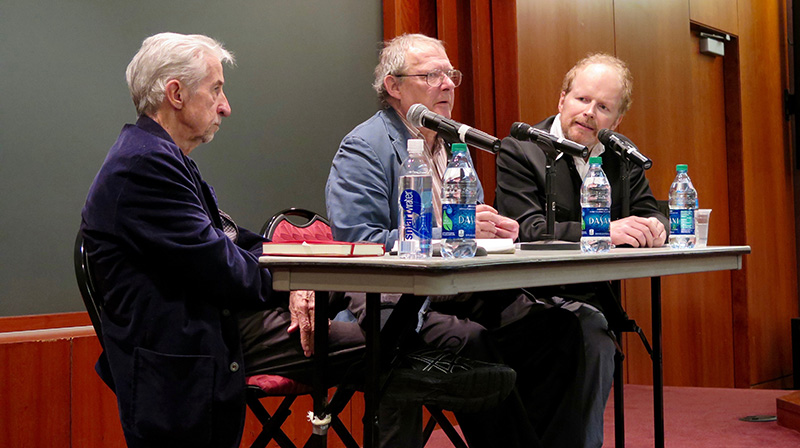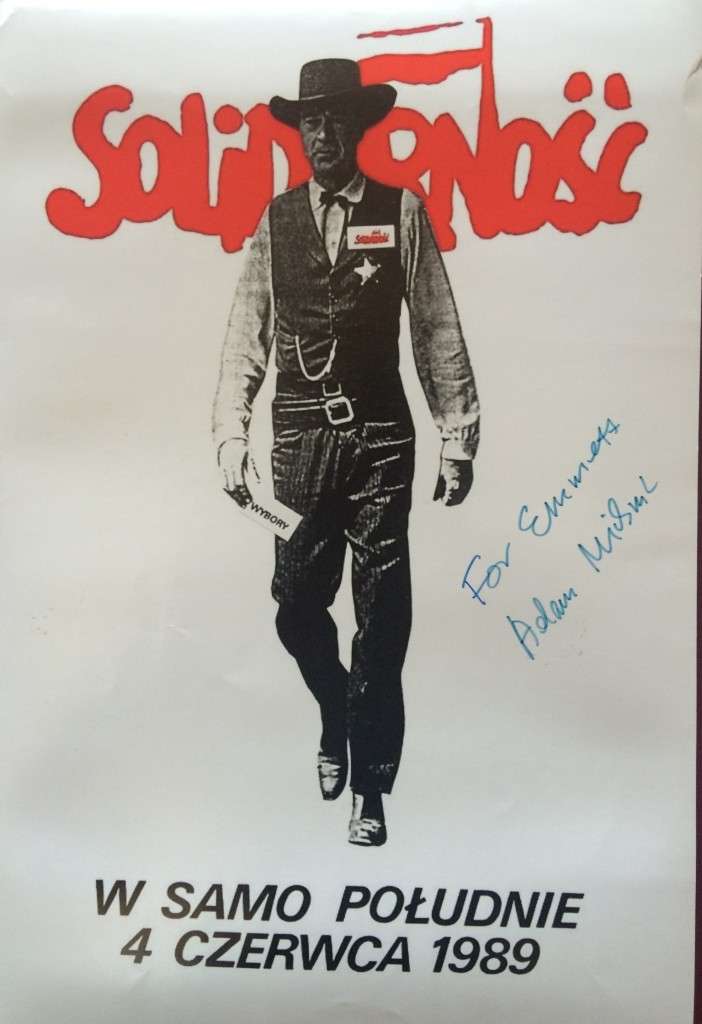Emmett Schlenz ’16, a senior majoring in History and English, offers his reflections on “The Power of Protest: A Conversation with Adam Michnik and Tom Hayden” event, which took place at Loyola Marymount University on February 24, 2016.
Adam Michnik, the Polish activist and Solidarity leader who spoke at the “Power of Protest” talk in February, said that in the days leading up to 1968 – the year when the world exploded with student protests for civil rights, against colonialism, against Vietnam, and more – many of “the young began to ask questions of their parents.” In Italy, Michnik said, children would inquire, “What were you doing under Mussolini?” Or in Germany: “what did you do under Hitler?” The same could be said for young people in Britain, France, and the United States: what were you doing in Northern Ireland, in Algeria, in Birmingham?

Whatever evasions their parents might have offered, the youth of 1968 seemed to answer their own question: those who came before them had done nothing, or at least not enough. In response, Michnik and his fellow ‘68ers (like American activist Tom Hayden, who also spoke at the event) developed, as Michnik put it, a “tradition of opposition, rebellion, and revolt.” With this tradition they managed to change things for the better. But they did not fix the world.
Forty-six years after 1968, we watched protestors in Ferguson face down a militarized police force. In the year that followed, over 1000 black men were killed by police. 2015 saw more murders of transgender people, primarily transgender women of color, than any other year on record. This January, the Obama administration began deportation raids against the houses of undocumented Central American immigrants. And all the while, refugees from Syria, yearning to be free from the horrors of war, surge into Europe and other countries in the Middle East, while our Congress refuses to offer them shelter.

Looking on at all of this, I have shaken my head at the tragedies, shaken my fist at the perpetrators, been shaken myself by the violence. But I have only looked on, from the comfort of LMU. Brave, brilliant people have indeed protested here on campus – the Christmas die-in of 2014 and last semester’s rally in support of the students of Missouri come to mind – but on the whole, for students at a university ostensibly dedicated to social justice, we have been peculiarly quiet. Myself included. We are content to declaim injustice over our lattes, while leaving that tradition of revolt to somebody else.
What I took out of the Power of Protest talk, what the students of 1968 showed me, is the notion of solidarity, of the moral necessity of unified protest. That to resist only when you yourself are threatened constitutes privilege at best and complicity at worst. That you have the ethical obligation to stand up, forever and always, for others, no matter where they might live – in your backyard or halfway across the world.
The example of the ‘68ers pulled into sharp relief my own moral failing. One day my own children will ask me where I was in 2016. I hope I am not ashamed of my answer.
It is only April, after all. There is time yet.



